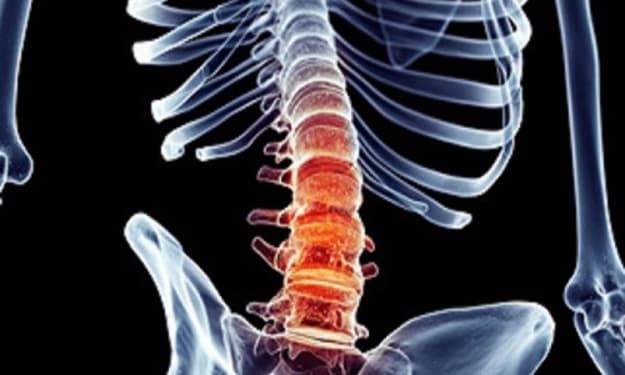ICD-10 Codes to Report Atrial Fibrillation – A Life-threatening Arrhythmia
Atrial Fibrillation

The article provides an overview of atrial fibrillation (A-fib or AF) – an irregular heart rhythm that can interrupt the normal flow of blood in the body.
Atrial fibrillation (A-fib or AF) refers to an irregular heart rhythm that can interrupt the normal flow of blood in the body. Also known as a type of arrhythmia, the condition often leads to abnormally fast heartbeat that can cause blood clots, stroke, heart failure and heart-related complications. In normal cases, the heart contracts and relaxes to a regular heart beat (between 60 and 100 beats a minute) when the person is resting. However, in A-fib, the upper chambers of the heart (the atria) beat irregularly at a very fast pace and may range from 100 to 175 beats a minute. A-fib is the most common arrhythmia encountered in the critical care environment, which is caused by problems with the heart’s electrical system. In order to ensure appropriate reimbursement, critical care specialists must be acquainted with new and existing codes as well as ensure documentation that reflects the professional services that support the codes. Critical care medical billing and coding services can help ensure this.
As per reports from the American Heart Association, about 2.7 million Americans are living with A-fib (2020 statistics). The condition can have a significant negative impact on an individual's quality of life, causing heart palpitations, chronic fatigue, debilitating pain and can increase the risk of stroke fivefold. A-fib can lead to longer ICU stay and is associated with an increased risk of mortality. Generally, episodes of atrial fibrillation may come and go and may not be life threatening. But A-fib can also be a serious medical condition that requires emergency treatment.
In most cases, abnormalities or damage to the to the heart's structure can lead to the condition. Other factors that can contribute to A-fib are high blood pressure, stress (due to surgery, pneumonia or other illnesses), heart attack, abnormal heart valves, congenital heart disease, coronary heart disease, lung diseases, sleep apnea, and previous heart surgeries. It is estimated that about 15–20 percent of people who have strokes have this heart arrhythmia. If left untreated, the condition can lead to several complications like stroke and permanent heart failure.
Symptoms of A-fib
Generally, people with atrial fibrillation experience no specific symptoms and are quite unaware of their condition until it's discovered during a physical examination. In certain other cases, the symptoms may occur intermittently. Often, with A-fib, the heart rate is higher than usual. A person’s heart rate will depend on the frequency of the signals experienced by the atria and how rapidly they are conducted to the ventricle. Other symptoms include – palpitations, or the feeling of an irregular heartbeat, uneasiness, low blood pressure, fatigue, dizziness, lightheadedness, and fainting, chest pain, pressure, or discomfort and breathlessness (particularly during exercise or activity). However, for persons who do not experience any specific symptoms of A-fib, it may go untreated. Lack of treatment may lead to complications, such as a stroke or heart failure.
Diagnosis of atrial fibrillation may begin with a careful review of signs and symptoms, previous medical history review and a detailed physical examination. Imaging tests like - Electrocardiogram (ECG), Echocardiogram, Chest X-ray, Stress test and other blood tests may be recommended by physicians as part of the diagnosis. Treatment modalities for this condition may involve a combination of medications to help normalize heart rhythm, control a person’s heart rate and prevent clots, and procedures like electrical cardioversion, catheter ablation, pacemaker placement and surgical ablation.
ICD-10 Codes to Report Atrial fibrillation (A-fib)
Billing and coding for A-fib can be complex as there are several rules related to reporting the condition. Physicians must report the diagnostic tests and treatment procedures using the right medical codes. Medical coding services can ensure the right use of relevant codes to bill for the procedures correctly.ICD-10 diagnosis codes for Atrial fibrillation include -
- I48 Atrial fibrillation and flutter
- I48.0 Paroxysmal atrial fibrillation
- I48.1 Persistent atrial fibrillation
* I48.11 Longstanding persistent atrial fibrillation
* I48.19 Other persistent atrial fibrillation
- I48.2 Chronic atrial fibrillation
* I48.20 Chronic atrial fibrillation, unspecified
* I48.21 Permanent atrial fibrillation
- I48.3 Typical atrial flutter
- I48.4 Atypical atrial flutter
- I48.9 Unspecified atrial fibrillation and atrial flutter
* I48.91 Unspecified atrial fibrillation
* I48.92 Unspecified atrial flutter
September is Atrial Fibrillation Awareness Month
September is observed as “National Atrial Fibrillation Awareness Month”. The month-long campaign aims to generate widespread awareness about A-fib. The Centers for Disease Control and Prevention (CDC) estimates that 12.1 million people in the U.S. will have A-fib by 2030. But while it is the most common type of arrhythmia, many people do not know they have A Fib until they experience symptoms or they are hospitalized for complications caused by A-fib. The month of September is dedicated to learning about and discussing A-fib to spread knowledge about its signs and symptoms.
About the Creator
Outsource Strategies International
Outsource Strategies International is one of the leading medical billing and coding companies in the medical outsourcing space.






Comments
There are no comments for this story
Be the first to respond and start the conversation.